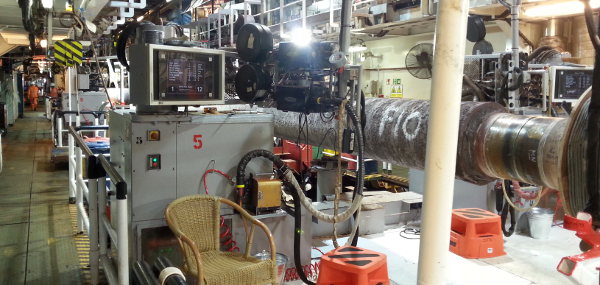WelderDestiny › Welder Career Progression › Welding Technician Jobs
Welding Technician Jobs
Welding technician jobs can be very diverse, and the role of welding technician will be different in different organizations. Having said that, generally this means taking a role that is hands-on, but in more of a technical role than actual welding production. In the medium term, where automation will increase, there will be an increasing demand for people taking this type of role.
The WelderDestiny Compass: Weekly e-zine Subscription
You can take a look at "The WelderDestiny Compass" back-issues by clicking here.
The
typical organization providing welding technician jobs are those running automated
welding systems. It is the job of the welding technician to set up the
automated welding machines and to perform the routine adjustments and
maintenance and setting of the machines. A typical organization using welding
technicians may be a pipeline installation contractor, or a welding technology
supplier to the pipeline industry. Any organization using welding robots will
also need welding technicians.
 Subsea Pipeline Laybarge Welding Station With Automated Welding Equipment - Welding Technicians Are Required to Set Up This Type of Equipment
Subsea Pipeline Laybarge Welding Station With Automated Welding Equipment - Welding Technicians Are Required to Set Up This Type of EquipmentSkills Required in Welding Technician Jobs
Below
is a list of knowledge and skills that would be required within a typical welding technician job:
- Electro-mechanics: This really just means that you know quite a bit about electrical and mechanical systems. This kind of knowledge could be gained through tertiary qualifications such as those you can obtain at a college, technical university or TAFE. Many people will initially just pick this up as “on the job” training. Over time, as the equipment becomes more complex, the requirement for the formal qualifications will probably increase.
- Computer systems and interfaces: While the lower tech systems tend to be based on analog controls, more and more of the systems are computer controlled. Knowing how to interface computer hardware is therefore important. Also understanding Programmable Logic Controllers (PLC’s) would be a big plus, as these are often used in “stand-alone” mechanized systems such as those associated with welding power sources.
- Computer programming: It is generally not required of a welding technician to program the software of the automated systems. It will however help you understand the normal logic used by programmers, and the difficulties the programmers face. This will make it much easier for you to trouble-shoot automated systems that “play up”. After all, trouble shooting will be one of your main jobs!
- Welding: If you have no idea of how to weld, then you will not have the required appreciation for why things appear to be going wrong with the welding. (As opposed to the equipment.) You need to know how to weld, to answer questions such as: Why is the overhead section of the weld bead standing too proud? Why are we not getting proper penetration or fusion? Why are we burning through in the root? Knowing why this type of thing happens from a Welder’s perspective will help you to set up the equipment much better.
- Quality control and systems: While it is generally not the welding technician’s job to run with the QC or associated systems, you need to understand these to appreciate the constraints on the welders. It will not help if you set the equipment to perform really great looking welds, but the welding parameters are outside that required on the welding procedure. (WPS)
Routes to Becoming a Welding Technician
If
you are a Welder that is interested in the equipment side of things, you can
certainly gear yourself up for a welding technician job by doing some technical qualifications through your
local community college or TAFE. You may be lucky to be working for an organization that
will train you up through some “on-the-job” training. If so, make the most of
the opportunity.
If
you have a technical qualification in the electro-mechanics field, and would
like to qualify for a welding technician job, then it would be most advantageous for you
to get some welding training under your belt. In particular, most automated
systems use Gas Metal Arc Welding (GMAW) therefore you would want to
concentrate your welding training on this process.
The
other big process is spot welding, but here the welding skill side is rather
low, so if you were going to work in an industry where spot welding is often
used (e.g. Automotive industry) then doing the welding training is not so
important. You will be able to pick up that information easily enough on the
job.
The
more complicated the automated systems become, the more important the
electro-mechanical knowledge becomes. This means that if you want a welding technician job working with
the more advanced systems, then you will have to have some formal
qualifications in this direction. I therefore encourage you to do some part
time study into this direction if you are a Welder that is interested in welding technician jobs.
WelderDestiny › Welder Career Progression › Welding Technician Jobs
The WelderDestiny Compass: Weekly e-zine Subscription
You can take a look at "The WelderDestiny Compass" back-issues by clicking here.